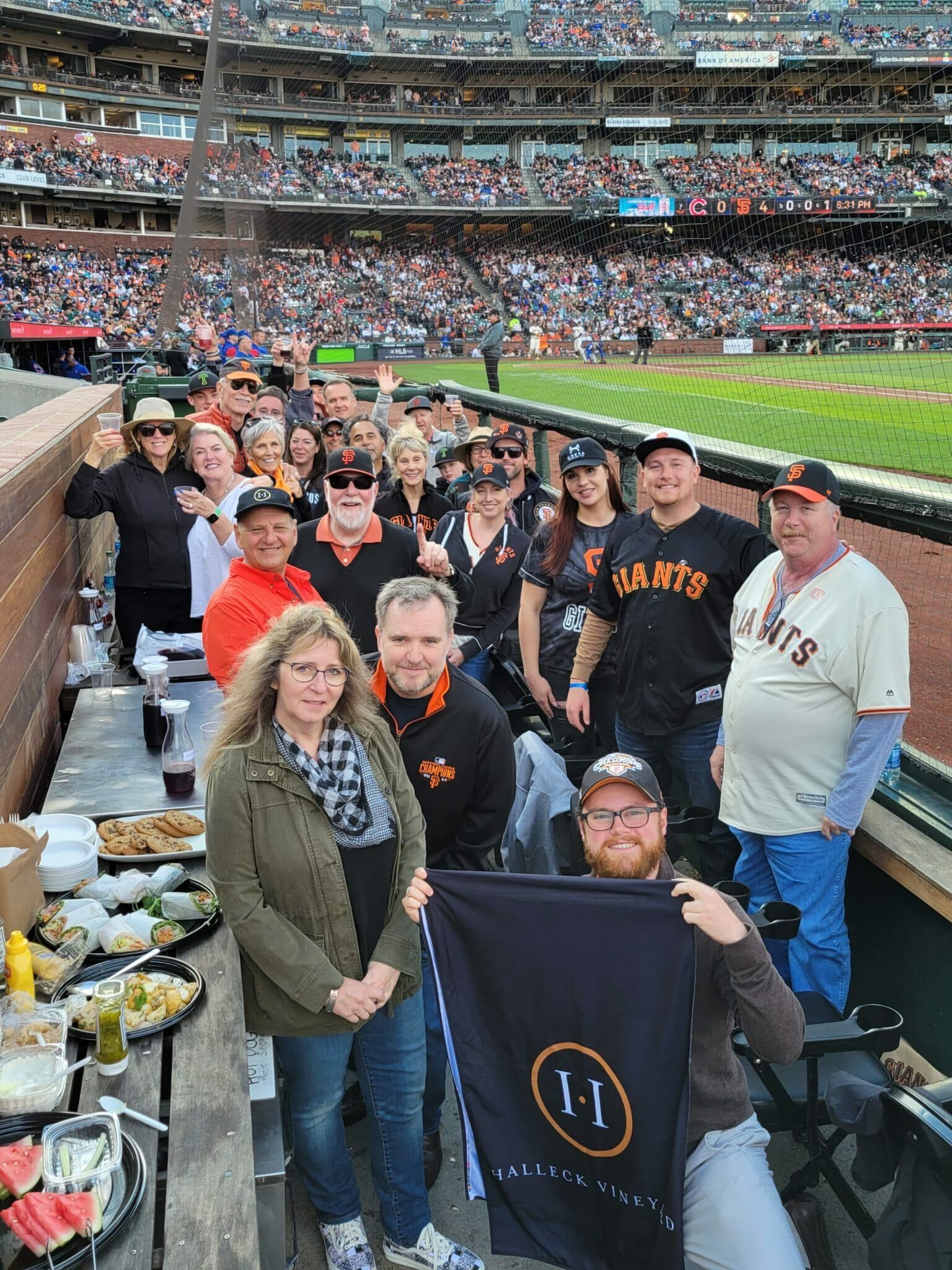Wineries With Estate-Grown Grapes - Sebastopol Wine Experiences
Wineries With Estate-Grown Grapes - Sebastopol Wine Experiences
Blog Article
Cultural Wine Experiences In Sonoma County - Sonoma Wine Culture
Wine tasting is often regarded as an art kind, one that goes past merely enjoying a beverage. It embraces a fancy interplay of flavors, aromas, and textures that requires dedicated practice to actually master. Many who enterprise into the world of wine tasting quickly understand that it entails far more than simply sipping wine. Enhancing sensory skills by way of dedicated winery wine tasting can elevate the experience, reworking a casual consuming occasion into a complicated exploration of the senses.
At a primary stage, wine tasting engages the senses of sight, smell, style, contact, and even sound. Each element performs a crucial function in appreciating the nuances of a wine. When one first pours a glass of wine, the wealthy hues can provide preliminary insights into its age and varietal. Observing the colour and readability helps kind expectations concerning the wine's flavor profile. Many don’t fully respect how this visual evaluation can set the stage for what is to comply with.
The subsequent step is to engage the sense of smell. Swirling the glass aerates the wine, allowing its unstable compounds to flee and fill the air with its bouquet. The nose entails some fascinating layers—different aromas can signal various elements of the winemaking process, together with the sort of grapes used, fermentation strategies, and aging circumstances. Growing a eager sense of smell is usually a game-changer in wine tasting.
Wineries Ideal For Large Groups - Vines And Views In Sonoma Wine Country
To improve this sensory skill, wine enthusiasts are sometimes encouraged to take part in dedicated tastings at wineries. These tastings allow people to focus solely on the sensory experience (Hidden Gem Wineries In Sonoma County). Tasting classes led by educated sommeliers or winemakers can offer insights into figuring out distinct aromas. Learning to distinguish between floral, fruity, earthy, and spicy notes can empower a taster to articulate their experience with higher precision.
As one practices their sensory skills, they might discover that their style preferences evolve. This transformation often happens after a number of tastings. A wine that originally seemed overwhelming may reveal hidden layers of complexity with a bit of experience. Understanding how to isolate particular person flavors similar to acidity, sweetness, bitterness, and umami contributes considerably to the overall wine experience.
One Other important element in bettering sensory skills is the context in which wine is tasted. Environmental factors like temperature, lighting, and even the company current can influence perceptions. At a winery, an optimal setting can cut back distractions and allow a more profound exploration of the wine (Wineries Near Highway 12). Training aware tasting techniques encourages a extra immersive experience, allowing tasters to hone in on their senses.
It is not solely about individual perception, though. Participating with others during a tasting can even enhance sensory skills. Sharing notes and discussing impressions fosters a deeper understanding of the wine. This collaborative strategy encourages participants to articulate their sensory experiences, thereby broadening their linguistic repertoire related to wine tasting.
Exclusive Wine Clubs In Sonoma - Tasting Fine Wines In Sonoma County
Additionally, pairing wine with food can considerably improve the tasting experience. Completely Different combinations can deliver out unique flavors in both the wine and the dish. As one tastes a wine alongside particular meals, they will start to acknowledge how certain elements within the wine complement or contrast with what they're consuming. This skill of pairing is another layer that enriches sensory growth.
Training one’s palate can contain a selection of exercises. Some enthusiasts have interaction in systematic tasting experiences, sampling a variety of wines that showcase different varietals, areas, or vintages. Exploring this diversity can sharpen the flexibility to discern nuances across completely different wine profiles. Over time, this practice builds a mental library of flavors that may be accessed throughout future tastings.
Notably, written notes serve a dual purpose: organizing one’s ideas and reinforcing memory. By writing down observations about each wine, tasters can monitor their progress over time. Detailing the characteristics of wines assists in solidifying data, finally deepening one’s appreciation of what they devour.
Furthermore, attending workshops or classes centered on sensory analysis can additionally be beneficial. Many wineries provide these educational applications to help people refine their skills. Often, educated instructors guide members via structured tastings, specializing in specific parts of the wine. This level of training reinforces the sensory skills asynchronously and challenges tasters to contemplate their experiences from different angles.
Wineries Located Near Russian River Valley - Sonoma's Finest Wineries
Over time, the dedication to bettering sensory skills via devoted winery wine tasting can yield important rewards. The enjoyment derived from wine turns into layered and multifaceted. No longer restricted to a easy desire for "pink" or "white," tasters start to understand the tales behind every pour. They domesticate a palette capable of navigating the complex landscape of flavors with confidence.
In conclusion, the journey of enhancing sensory skills by way of devoted winery wine tasting is read this article as rewarding as it is pleasant. It requires focus, commitment, and a willingness to learn, but the outcomes far exceed the initial effort. By engaging multiple senses and participating in considerate discussions, people not solely turn out to be more adept at identifying flavors but also develop a deeper appreciation for the craftsmanship behind each bottle. The course of transforms wine from a mere beverage right into a wealthy tapestry of sensory exploration that beckons enthusiasts to delve deeper. As skills enhance, so too does the enjoyment, enriching life experiences one sip at a time.
Wineries With Unique Tasting Experiences - Sebastopol Wine Country Vineyards Adventure
- Participating the palate through numerous wine varieties enhances the ability to differentiate flavors and aromas, refining total sensory notion.
- Participating in guided tastings promotes targeted attention on delicate characteristics of each wine, nurturing important tasting skills.
- Studying to identify specific grape varieties fosters a deeper understanding of terroir, which aids in recognizing regional flavor profiles.
- Incorporating food pairings throughout tastings can heighten sensory awareness, as different tastes can influence each other and alter perceptions.
- Training the art of swirling and nosing wines permits people to attach olfactory cues with style, improving the ability to articulate sensory experiences.
- Attending workshops that emphasize blind tastings trains participants to rely purely on their senses rather than preconceived notions, enhancing objectivity.
- Elevating sensory skills can lead to better wine selection abilities, empowering individuals to make informed choices based mostly on personal preferences.
- Partaking with educated sommeliers provides insights into wine-making processes, which deepens sensory appreciation and enhances vocabulary for describing wines.
- Common participation in tastings encourages reminiscence improvement of flavors and aromas, aiding in the formation of a personalised sensory profile over time.
- Sharing tasting experiences with peers fosters discussion, promoting communal learning that may improve individual sensory skills via collaboration.undefinedWhat is the aim of bettering sensory skills via wine tasting?

Improving sensory skills through wine tasting permits people to enhance their capacity to determine and appreciate the assorted aromas, flavors, and textures of wine. This heightened sensory consciousness can lead to a deeper understanding of wine and an total enriched tasting experience.
Wineries Offering Elegant Wine Tastings - Unique Wine Tasting Experiences In Sebastopol
How can I develop my sensory skills at a winery?
You can develop your sensory skills at a winery by participating in guided tasting sessions that focus on specific varietals. Engage with knowledgeable workers who can present insights and encourage you to take notes in your impressions, enhancing each your observational and descriptive talents.
What should I anticipate throughout a devoted wine tasting experience?
Interactive Wine Tasting Experiences In Sonoma - Exploring The Vineyards In Sonoma County
During a dedicated wine tasting experience, anticipate to pattern a number of wines whereas receiving focused education about each one. You'll study concerning the winemaking course of, tasting techniques, and how to discern completely different sensory traits, all in a relaxed setting.

Is prior knowledge of wine needed to learn from a sensory skills workshop?
- Wineries Offering Educational Wine Seminars
No prior knowledge of wine is important; the workshops are designed for all ranges of experience. Newbies will discover valuable info to construct from, while seasoned tasters can refine their skills and increase their palate even additional.
How do sensory skills impact my general wine appreciation?
Wineries With Live Music Events Occasionally - Top Sonoma Wineries To Visit
Enhancing sensory skills significantly enhances your overall wine appreciation by permitting you to determine subtleties and complexities in wines. This deeper understanding enriches your tasting experience and helps you make informed alternatives primarily based on personal preferences.
Are there specific techniques I ought to use whereas tasting wine to improve my sensory skills?
Quaint Wineries In Picturesque Settings In Sebastopol - Vineyard Tours In Sebastopol
Yes, employing techniques such as the "SWOT" method (Sight, Swirl, Smell, Sip, Savor) can be beneficial. Pay consideration to the wine's look, aromatics, and mouthfeel, and take your time with every sip to totally discover the flavors and sensations.
What type of wines are usually included in sensory skills tastings?
Sometimes, sensory skills tastings include a wide selection of wines that showcase different areas, varietals, and styles. This variety helps participants establish distinct traits and enhances their capacity to distinguish between wines.
Can sensory skills workshops be personalized to my tasting interests?
Romantic Winery Destinations In Sebastopol - Best Vineyard Visits In Sonoma
Many wineries offer personalized choices click this link for sensory skills workshops, allowing you to concentrate on specific types of wines or themes that curiosity you, such as organic wines or distinctive regional choices. It Is finest to inquire immediately with the winery for tailor-made experiences.
Is there a method to practice sensory skills after leaving the winery?
Yes, you can practice your sensory skills at home by tasting different wines and keeping a tasting journal. Experimenting with numerous food pairings and aromatics can further improve your understanding of how flavors work together, reinforcing the talents gained at the winery. Report this page